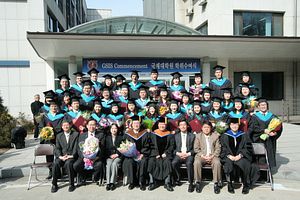It’s no secret that South Korea has long had a brain drain problem. However, the government is now getting serious about tackling this problem.
According to Institute for International Trade (IIT,) 71.5 percent of South Korean respondents say they are willing to come back to Korea after finishing their degree in foreign countries. In 2012’s survey, only 55.7 percent of people said the same thing.
The report concluded that high-quality human resources are returning to South Korea as the country increases its global competitiveness. As a result, South Korea’s brain drain problem is gradually reversing itself.
The number of South Korean students studying abroad has also decreased in recent years. In 2010, 251,887 Korean students went abroad to earn a degree or learn a language. Last year, that figure was down to just 227,126, according to the Korean Educational Statistics Service.
Meanwhile, the number of foreign students studying in South Korea has increased by an annual rate of 21.4 percent since 2003, from 12,314 students in 2003 to 85,923 in 2013.
Last month, South Korea’s Ministry of Culture, Sports and Tourism noted that while many South Koreans pursue a college degree, the country’s educational system is mediocre at best, prompting many Koreans to travel abroad for a better education.
The good news is that South Korea is aware of the problem, and is pursuing different policies to attract foreign talent to the country, as well as reduce its own brain drain. For instance, the government has encouraged colleges and high schools to offer language camps during vacations in an effort to dissuade students from going abroad to learn foreign languages.
Another such policy is Seoul’s effort to attract foreign educational institutions. Already, two American universities, the State University of New York (SUNY) and George Mason University, have opened up campuses in Incheon, and more universities are expected to open up South Korean campuses in the near future.
There has also been talk of reducing visa requirements for foreigners wishing to study in South Korea. For example, foreign students who will major in natural sciences or engineering only need to pass a level two Korean language test, instead of the level three test foreign students usually have to pass.
“The government simplified the screening process for foreigners seeking to study in universities. It will also allow private academies teaching bakery or beauty treatment to accept foreigners in an effort to attract more foreign talents to Korea,” Kim Tae-hyung, the head of the Ministry of Education’s Office of Planning & Coordination, told the Ministry of Culture, Sports and Tourism in an interview.

































